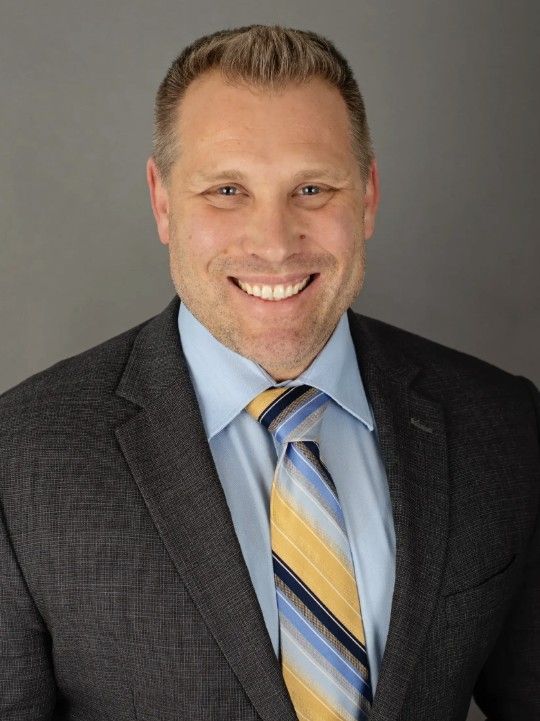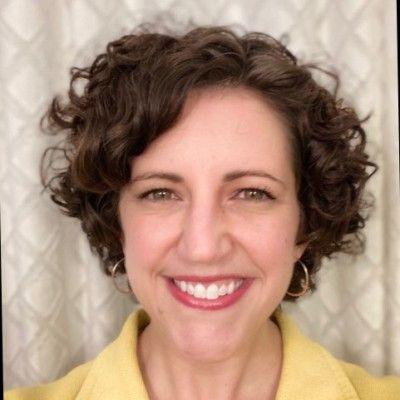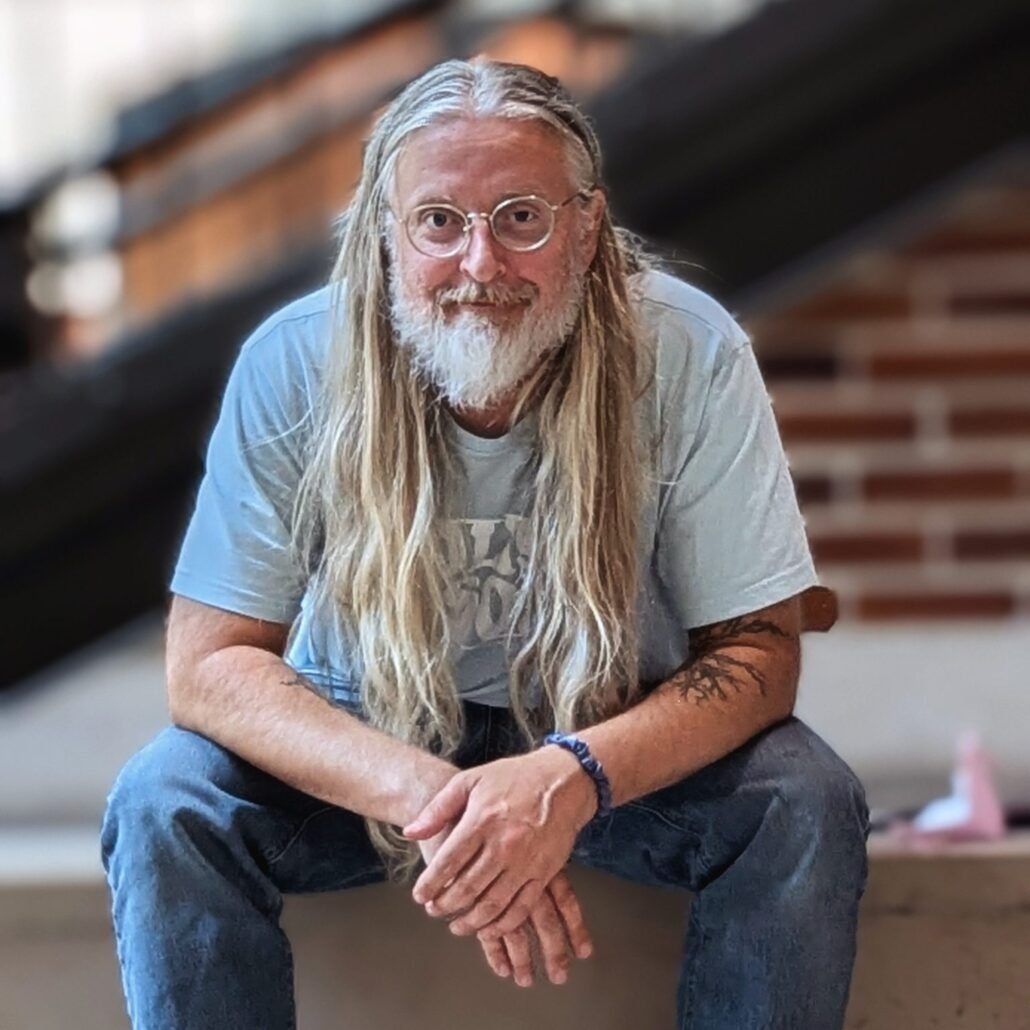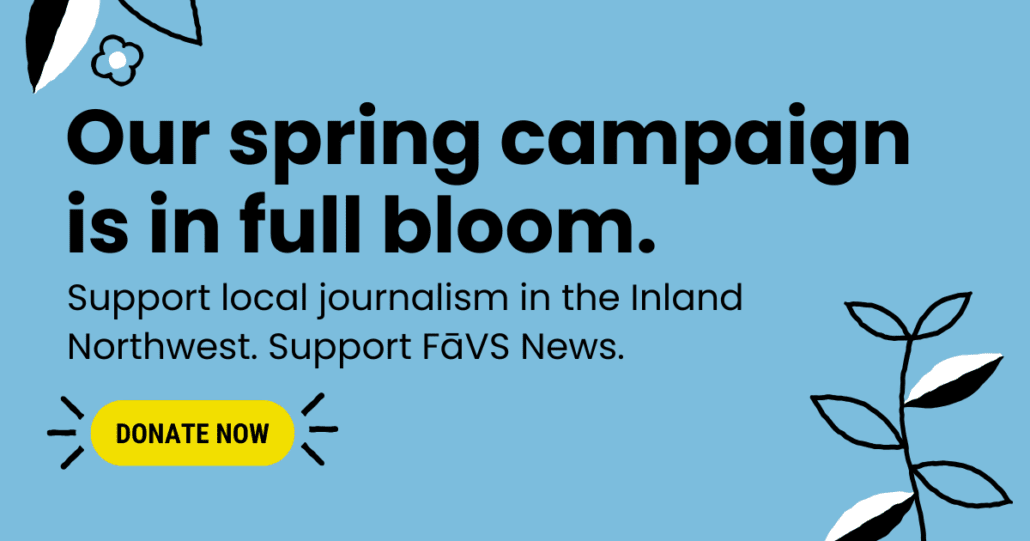Atheist Report: Religious Influence in Schools Grow in Pacific Northwest
News Story By Emma Maple | FāVS News
This is the fourth article in a series on the American Atheists Report and how it relates to the Inland Northwest. Read part one here, part two here and part three here.
Recent talks in the Idaho Legislature centering around parental rights, educational choice and religious freedom have highlighted the complicated tensions that surround these issues, both in the Pacific Northwest and the rest of the nation.
A new report by American Atheists, the 2025 State of the Secular States report, analyzed policies across all 50 states — including Washington and Idaho — looking for areas in education where religion and the state had become intertwined. It examined 16 different policy areas to determine where the First Amendment’s promise prohibiting the establishment of religion had become blurred through people’s desire for more control over, and religious influence in, their children’s education.
The public school choice
In public schools, nowhere is the fight to have increasing control over children’s education more prevalent than in the discussion around banned books and restricted topics.
Idaho has a law that prohibits teachers in public schools or colleges from discussing topics deemed divisive or controversial. According to the report, often, these laws are framed in terms of “parental rights.”
“[These laws are] trying to solve a nonexistent problem,” Idaho activist and American Atheists Idaho State Director Josiah Mannion said.
“They’re trying to keep porn out of the hands of kids, which sounds great, but there’s no porn in there,” he said.
Instead, he said book bans tend to affect marginalized individuals by keeping books like “The Hate U Give” and “Firekeeper’s Daughter” off the shelves.
During the 2023–2024 school year, over 60% of banned titles featured people of color or LGBTQ+ people, according to PEN America.
“You can justify so many terrible actions under the guise of ‘we have to protect the children,’” American Atheists President Nick Fish said.
And, when children are not given exposure to a wide range of ideas, “we really do risk a world of groupthink,” Stephanie Gronholz, religious education specialist with the Unitarian Universalist Church of Spokane, said.
One of the principles of Unitarian Universalism is to allow someone to use their freedom of conscience to learn in the world.
“That’s where I think there’s an intersection between faith and education,” Gronholz said. “Trust them [people] enough, trust their worth and their ability to reason enough that they’ll be able to figure things out.”
Idaho also has a law in place that requires schools to post religious displays such as “In God We Trust” or some version of the Bible’s Ten Commandments.
“These requirements have nothing to do with education, but rather are meant to inculcate the ahistorical belief that America was founded as a Christian nation and to reinforce the linkage of religious expression with American identity,” the report read.
And, this year, Idaho is trying to take it even further with HB162, which would mandate daily Bible readings in public schools.
When the facts of religion, or how it has played into international relations and geopolitical conflicts, are presented to children, Gronholz said it has an important role.
“But religion as a personal practice I think needs to stay out of schools,” she added, noting that children should be able to practice their religion on their own.
The private school choice
But, when public school does not suffice for parents, there are other options — such as private schools.
One of the reasons people put their children into private school is disillusionment with the state of public school, and the view that religion and the family have been left out of a foundational part of their children’s development.
“I suspect what you’re going to see is that … religion [in schools] is largely supplanted by nonreligious elements,” Pete Serrano, director and general counsel for the non-profit Constitutional law organization the Silent Majority Foundation, said. “I put my kids in private school for that specific purpose.”

The price tag can often be a barrier to entry. However, several states have established school voucher programs that allow taxpayer funding to support a child’s private education.
This Legislative session, Idaho passed a school voucher program allowing private and homeschooled students a $5,000 or $7,500 refundable tax credit for school-related expenses. And, although Washington does not have a school voucher program, a group called Restore Washington has been working toward putting a voucher program on the ballot in the form of an initiative.
“I think school choice is really important, and the funding of that choice is where things get really, really complicated,” Gronholz said. “Is it fair for it to be entirely privately-funded if our job is to educate all students? I think it’s really complicated [and] I can see both sides.”
But when both public and private school education aren’t cutting it, the next option is homeschooling.
The homeschool choice
There are many reasons people homeschool, one of them being distrust of government-funded education, according to Mannion.
When children are in public school, they “can be exposed to worlds outside of the specific world that they [the religious group or parents] are trying to create,” he added.
Each state tackles the homeschool issue with laws and regulations in place to guide it. Washington has more stringent laws, requiring instructor qualifications and testing and evaluations. It does not, however, have any laws banning children from being homeschooled if one of the adults has been convicted with crimes such as homicide or rape.
Idaho also does not have child abuse prevention laws, nor does it have instructor qualification requirements or testing and evaluations.
Even if more stringent laws are in place, some children can still fall through the cracks. Gronholz said she decided to homeschool during the pandemic.

“The freedoms that I was afforded in that homeschool context really led to tremendous learning for the children, but that was by no measure of the state’s intervention,” Gronholz said, noting that she wasn’t contacted once by the state the whole time she was homeschooling.
Although her son was partially-enrolled in a local school district, Gronholz said there still wasn’t any follow up on his education.
“It worked really well for me, but I also could see how it could lead to negligence on the part of the parents,” she said.
Origins of the tension
The loudest voices in the fight for more religious entanglement with state funded education comes from white Christian nationalism, Mannion said.
This force is especially prevalent in North Idaho due to historical factors and intentional efforts to bring “radical right evangelical Christians into the area,” Mannion said.
Often, this view thinks there is “no other way to be a moral and complete and ethical human being outside of the confines of this specific interpretation of one set of religious beliefs,” Mannion said.
However, religious perspectives are never monolithic.
“There are plenty of religious institutions in our area that are pushing back on it, that are part of the fight against Christian nationalism,” Mannion said.
While the forces representing white Christian nationalism often have more funding and organization to advocate for their ends, Mannion said the resistance is becoming more coordinated and intersectional, merging together people with different backgrounds who share common goals.
“Atheists need the religious folks who are fighting back against Christian nationalism,” he said. “They have more leverage to fight against Christian nationalism than we do. They say Jesus actually did believe in taking care of the poor.”












Thanks, Emma, for this reporting. Amidst all the negative news about the strength of the religious right in North Idaho, it’s good to hear that atheists, Unitarians, and progressive Christians can work together in opposition.